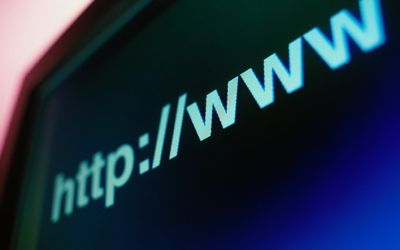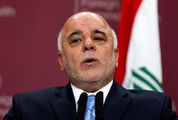NEWS ANALYSIS: China may allow access to foreign websites at Shanghai free-trade zone
by Agency Staff,
2013-09-25 12:46:25.0
NEWS ANALYSIS: China may allow access to foreign websites at Shanghai free-trade zone
FACEBOOK, Twitter and other websites deemed sensitive and blocked by the Chinese government may be accessible in a planned free-trade zone in economic hub Shanghai.
Citing unidentified government sources, the South China Morning Post reported on Tuesday that authorities would welcome bids from foreign companies for licences to provide internet services in the free-trade zone.
International rights groups have long criticised China as one of the worst nations for restricting freedom of information.
The government routinely censors China-based websites and blocks access by the country’s estimated 600-million internet users to many overseas websites, including Facebook, Twitter, YouTube and human rights and news sites. Police have jailed or fined dozens of rights activists and other internet users who posted online content that was deemed to be illegal.
Facebook and Twitter were blocked by Beijing in mid-2009 following deadly riots in the western province of Xinjiang that authorities said at the time were abetted by the social networking sites.
The New York Times has been blocked since reporting last year that the family of then-premier Wen Jiabao had amassed a huge fortune. Military-based hackers in China have also targeted the newspaper.
The recently approved Shanghai free-trade zone is expected to be a test case for the convertibility of China’s yuan currency and further liberalisation of interest rates, as well as reforms of foreign direct investment and taxation, the State Council, or cabinet, has said. The free-trade zone would be formally launched on Sunday, the Securities Times reported earlier this month.
The idea of unblocking websites in the free-trade zone was to make foreigners "feel like at home", the South China Morning Post quoted a government source as saying. "In order to welcome foreign companies to invest and to let foreigners live and work happily in the free-trade zone, we must think about how we can make them feel like at home," the newspaper quoted one anonymous government source as saying.
"If they can’t get onto Facebook or read The New York Times, they may naturally wonder how special the free-trade zone is compared with the rest of China," the source said.
A spokesman for Facebook said the company had no comment on the newspaper report.
China’s three biggest telecoms companies — China Mobile, China Unicom and China Telecom — had been informed of the decision to allow foreign competition in the free-trade zone, the sources told the newspaper.
The three government-owned companies had not complained because they knew the decision had been endorsed by the Chinese leadership, including Premier Li Keqiang, who had backed the Shanghai development, the sources added.
Reuters, Sapa-DPA

Picture: THINKSTOCK
FACEBOOK, Twitter and other websites deemed sensitive and blocked by the Chinese government may be accessible in a planned free-trade zone in economic hub Shanghai.
Citing unidentified government sources, the South China Morning Post reported on Tuesday that authorities would welcome bids from foreign companies for licences to provide internet services in the free-trade zone.
International rights groups have long criticised China as one of the worst nations for restricting freedom of information.
The government routinely censors China-based websites and blocks access by the country’s estimated 600-million internet users to many overseas websites, including Facebook, Twitter, YouTube and human rights and news sites. Police have jailed or fined dozens of rights activists and other internet users who posted online content that was deemed to be illegal.
Facebook and Twitter were blocked by Beijing in mid-2009 following deadly riots in the western province of Xinjiang that authorities said at the time were abetted by the social networking sites.
The New York Times has been blocked since reporting last year that the family of then-premier Wen Jiabao had amassed a huge fortune. Military-based hackers in China have also targeted the newspaper.
The recently approved Shanghai free-trade zone is expected to be a test case for the convertibility of China’s yuan currency and further liberalisation of interest rates, as well as reforms of foreign direct investment and taxation, the State Council, or cabinet, has said. The free-trade zone would be formally launched on Sunday, the Securities Times reported earlier this month.
The idea of unblocking websites in the free-trade zone was to make foreigners "feel like at home", the South China Morning Post quoted a government source as saying. "In order to welcome foreign companies to invest and to let foreigners live and work happily in the free-trade zone, we must think about how we can make them feel like at home," the newspaper quoted one anonymous government source as saying.
"If they can’t get onto Facebook or read The New York Times, they may naturally wonder how special the free-trade zone is compared with the rest of China," the source said.
A spokesman for Facebook said the company had no comment on the newspaper report.
China’s three biggest telecoms companies — China Mobile, China Unicom and China Telecom — had been informed of the decision to allow foreign competition in the free-trade zone, the sources told the newspaper.
The three government-owned companies had not complained because they knew the decision had been endorsed by the Chinese leadership, including Premier Li Keqiang, who had backed the Shanghai development, the sources added.
Reuters, Sapa-DPA




















Change: -0.47%
Change: -0.57%
Change: -1.76%
Change: -0.34%
Change: 0.02%
Data supplied by Profile Data
Change: -1.49%
Change: 0.00%
Change: -0.47%
Change: 0.00%
Change: -0.08%
Data supplied by Profile Data
Change: 0.48%
Change: 0.86%
Change: 0.28%
Change: -0.22%
Change: 0.93%
Data supplied by Profile Data
Change: 0.19%
Change: -0.21%
Change: 0.07%
Change: -1.22%
Change: -1.21%
Data supplied by Profile Data